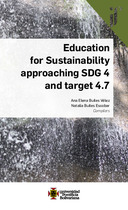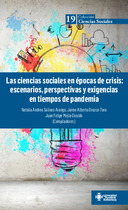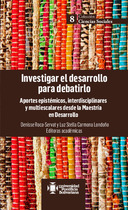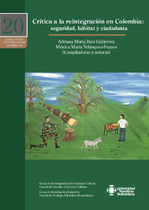Education for Sustainability approaching SDG 4 and target 4.7
| dc.contributor.author | Builes Vélez, Ana Elena. Compilador | |
| dc.contributor.author | Builes Escobar, Natalia. Compilador | |
| dc.contributor.author | Rossi, Emilio | |
| dc.contributor.author | Mattram, Alexa | |
| dc.contributor.author | Stocker, John | |
| dc.contributor.author | Rognoli, Valentina | |
| dc.contributor.author | Parisi, Stefano | |
| dc.contributor.author | Pollini, Barbara | |
| dc.contributor.author | Taranto, Martina | |
| dc.contributor.author | Amaya-García, Camilo | |
| dc.contributor.author | Treidl, Isabel | |
| dc.contributor.author | Suárez-Vásquez, Lina María | |
| dc.contributor.author | Restrepo-Jaramillo, Juliana | |
| dc.contributor.author | Pérez-Orrego, Natalia | |
| dc.contributor.author | Martínez Marín, Juan Diego | |
| dc.contributor.author | Osorio-Florez, Ana María | |
| dc.contributor.author | Bustamante, Carlos Ernesto | |
| dc.contributor.author | Jimenez, Jared | |
| dc.contributor.author | Baena Restrepo, Margarita María | |
| dc.contributor.author | Baquero Álvarez, María Margarita | |
| dc.contributor.author | Velásquez Posado, Mauricio | |
| dc.contributor.author | Agudelo Gutiérrez, Lina-María | |
| dc.contributor.author | Canal Gallego, Dubán | |
| dc.contributor.author | Marzola, Santiago | |
| dc.contributor.author | Peláez Rojas, Mariana | |
| dc.contributor.author | Pérez Ramírez, Marcela | |
| dc.contributor.author | Vásquez-Rendón, Mauricio | |
| dc.contributor.author | Mesa Betancur, Alejandro | |
| dc.contributor.author | Vélez Santamaría, David | |
| dc.date.accessioned | 2022-11-25T16:29:02Z | |
| dc.date.available | 2022-11-25T16:29:02Z | |
| dc.date.issued | 2022 | |
| dc.identifier.isbn | 978-628-500-077-5 | |
| dc.identifier.uri | http://hdl.handle.net/20.500.11912/10458 | |
| dc.description | 231 páginas | spa |
| dc.description.abstract | To face current sustainability challenges, we need to continue building, sharing, and applying the best possible knowledge to continue collaboratively developing solutions that allow us to improve how we live on our planet. In this, universities and other educational institutions have a crucial role in research, teaching, and service within the academic community and beyond. In this role, educational institutions also contribute to building and strengthening technical and relational human capabilities. It enables people to understand rationally better and emotionally connect more deeply with sustainability challenges and the diverse ways to continue solving them. In strengthening capabilities to respond to sustainability challenges, the contribution of a diverse range of areas of knowledge is required in the learning dynamics. Some areas of expertise that have been known for their human-centered approach to innovation processes4, such as architecture and design, play a significant part in the search for ideas that propose new ways to meet the challenges of sustainability while promoting well-being for people and other life forms and the environment. From architecture and design, the range of possibilities to develop ideas is broad, ranging from the proposal of new products, buildings, spaces, services and processes to recent activities and lifestyles. | spa |
| dc.format.mimetype | application/pdf | spa |
| dc.language.iso | spa | spa |
| dc.publisher | Universidad Pontificia Bolivariana | spa |
| dc.rights | Attribution-NonCommercial-NoDerivatives 4.0 Internacional | * |
| dc.rights.uri | http://creativecommons.org/licenses/by-nc-nd/4.0/ | * |
| dc.subject | Sostenibilidad | spa |
| dc.subject | Medellín | spa |
| dc.subject | Diseño de producto | spa |
| dc.title | Education for Sustainability approaching SDG 4 and target 4.7 | spa |
| dc.type | book | spa |
| dc.description.sectional | Medellín | spa |
Files in this item
This item appears in the following Collection(s)
-
Libros [364]
Libros





